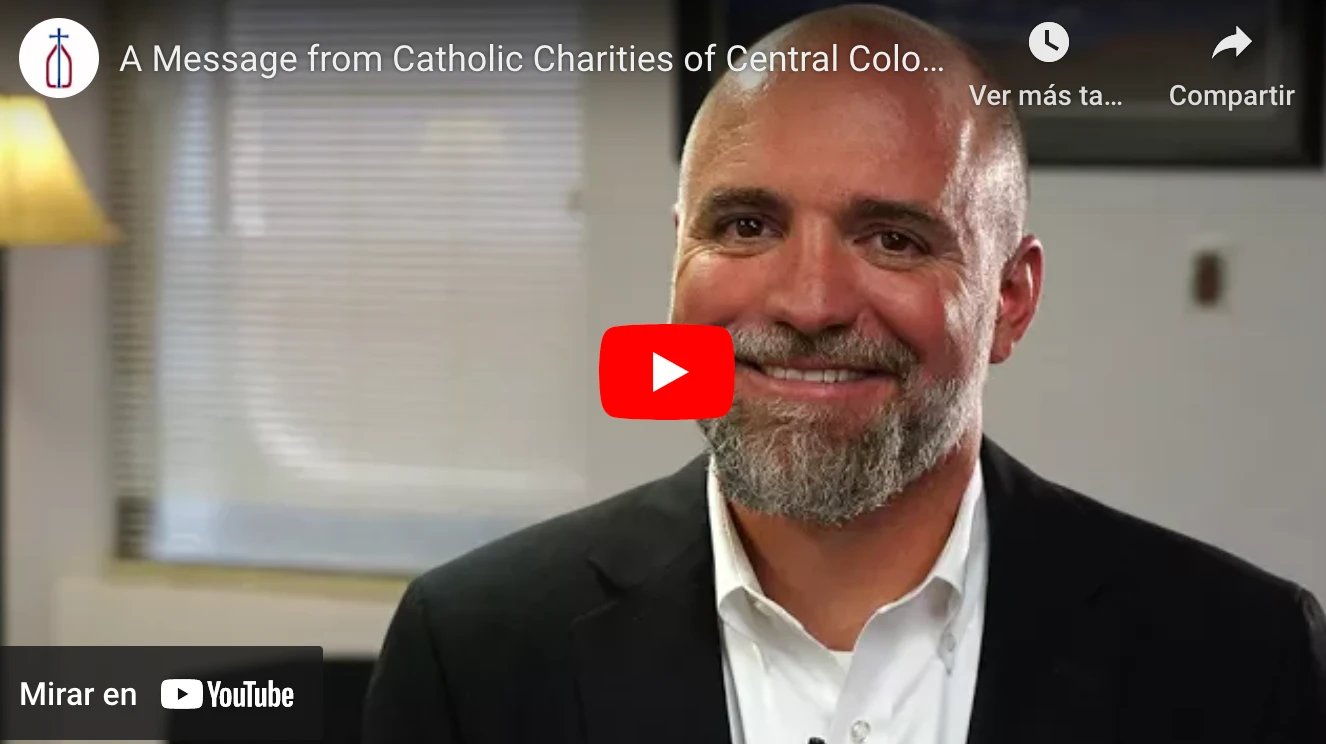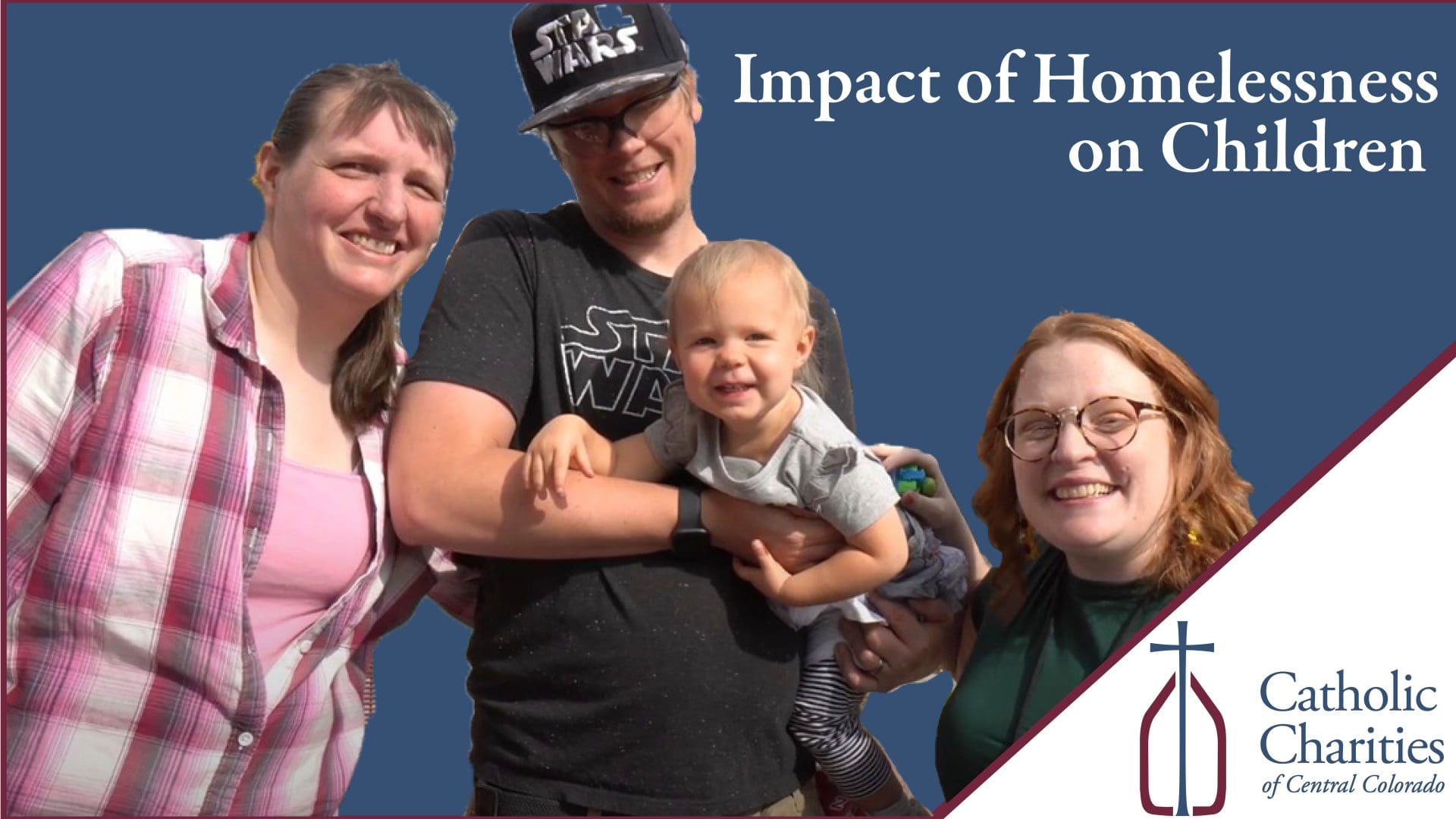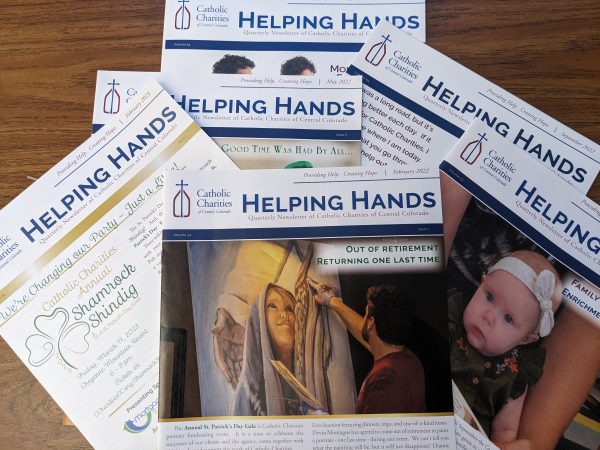
BY ANDY BARTON
One of the greatest challenges in humanitarian work is determining when it becomes enablement. At what point does providing services contribute to the propagation of people’s needs? It is a challenge that arises around issues ranging from homelessness to asylum seekers at the border. The claim of enablement occurs with some frequency for Catholic Charities when focused on the location of the Marian House in Colorado Springs. Some believe that providing services at that location enables homelessness in the downtown area.
There are a lot of smart people who argue that homeless services exacerbate the problem, and they are not entirely wrong. They rightly acknowledge that prevention is the best approach to homelessness. If we can address generational poverty, mental health, addiction, and the skyrocketing cost of housing in Colorado Springs, fewer people will be living in camps and sleeping in the doorways of downtown businesses. To that end, Catholic Charities has taken deliberate steps to work in a more preventative space over the past three years. We have discontinued services intended to serve our chronically homeless because they can get those services at the Springs Rescue Mission. Our focus is on families, health and wellness, and employment; we are making operational decisions to put our resources there.
Yet I am reminded of the holes in the prevention/enablement debate whenever we reach that point in the year when temperatures plunge below zero for days at a time. It happened this February when winter finally arrived in Colorado Springs.
In years past, the Marian House has operated as a “day” shelter when morning temperatures dropped below freezing. We opened our doors at 8 a.m. and let guests stay inside until the meal service ended. Last fall, however, we made the decision to stand down the warming shelter. Our rationale was that, if the Marian House were not there to provide shelter on freezing days, it would nudge our homeless population into one of our community’s overnight shelters. We would not be enabling people to sleep outside.
Our strategy worked through December 2021, mostly because our weather had been so mild. But February came with a couple of days of windchill at negative 20 degrees, and people arrived at our doors, asking to come inside. Very few human beings (and no Christian) would keep those doors closed: our staff let them in. On a couple of frigid mornings last month, 20-30 bone-chilled men and women found warmth in the Hanifen Center of the Marian House. It turns out that Catholic Charities still operates a warming shelter. Not because it was part of our plan, but because our community has not ended homelessness and we are called to serve our poor and vulnerable when and where we encounter them.
There are sound reasons for the opposing ideologies that form around the challenges of humanitarian support, but the reality on the front line is this: it can be hard to maintain those views when human beings show up at your doorstep. At those moments, the words of our Lord spoken in The Judgement of Nations, are the words that ring loudest and truest. “Come you who are blessed by my Father. Inherit the kingdom prepared for you from the foundation of the world. For I was hungry, and you gave me food…” At the critical moment of separating the sheep from the goats, it did not matter why the least of our brothers were hungry, thirsty, a stranger, naked, ill, or in prison: it only mattered that they were cared for. It is worth remembering any time we struggle with the enablement debate.
Andy Barton is the President and CEO of Catholic Charities of Central Colorado. This article first appeared in the Colorado Catholic Herald.





Leave a Reply